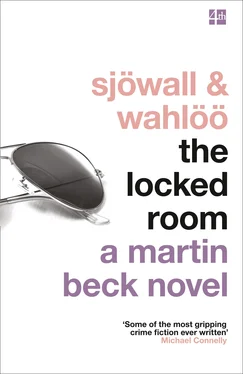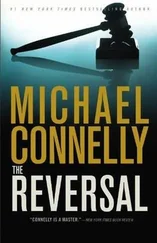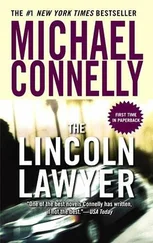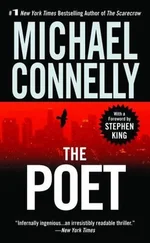The technical preparations were over. The room was vibrating with suppressed excitement.
‘Well, now we'll see,’ Bulldozer Olsson said enthusiastically. ‘If the pictures are as good as they say they are, we'll put them on television tonight, and that'll give us the whole gang in a little box.’
‘Longlegs is passable, too,’ Gunvald Larsson said.
‘Or Swedish Sex,’ said Kollberg. ‘Fancy – I've never seen a blue movie. You know, Louise, Seventeen, Strips , all that sort of stuff’
‘Quiet over there!’ snapped the National Police Commissioner.
The film began. The focus was perfect. None of those present had ever seen anything like such excellent results. Usually the thieves only resembled vague blobs or poached eggs; but this time the image was perfect.
The camera had been artfully placed to show the cashier's desk from behind, and thanks to a new type of hypersensitive film they could see with perfect clarity the person standing on the other side of the counter.
At first there was nobody there. But only half a minute later a person had come into the field of vision, then stopped and looked around – first to the right then to the left. Whereafter the person in question stared straight into the lens, as if purposely to give a full-face view.
Even the clothes showed up clearly; a suede jacket and a well-cut shirt with long, soft points to the collar.
The face itself was forceful and grim, the blonde hair was combed back, and the fair eyebrows were shaggy. The eyes wore an air of discontent. Then the figure raised a large hairy hand and, extracting a hair from one nostril, scrutinized it at length.
At once they all saw who it was.
Gunvald Larsson.
Then the lights went up.
The special squad sat speechless.
The National Police Commissioner was the first to speak.
‘Nothing of this must get out.’
Naturally. Nothing was ever allowed to get out.
Superintendent Malm said in a shrill voice: ‘Absolutely nothing of this must be allowed to come out.’
Kollberg let out a guffaw.
‘How can this have happened?’ Bulldozer Olsson asked. Even he seemed a trifle put out.
‘Well,’ the film expert said, ‘there could be a technical explanation. The trigger may have got jammed and the camera started up a bit later than it should have. These are sensitive gadgets, you know.’
‘If I see so much as a single word in the press,’ thundered the National Police Commissioner, ‘then …’
‘… then the Ministry'll have to order another new carpet for someone's office,’ said Gunvald Larsson. ‘Maybe there's a kind with a raspberry flavour.’
‘Fantastic get-up she was wearing,’ snorted Kollberg.
The National Police Commissioner dashed for the door. Superintendent Malm trotted out after him.
Kollberg gasped for air.
‘What's one to say about this?’ said Bulldozer Olsson.
‘Though I say so myself,’ Gunvald Larsson said modestly, ‘I think that film was really rather good.’
Kollberg had collected himself and was looking dubiously at the person who, for the time being, he had to regard as his boss.
Bulldozer Olsson was the special squad's main engine. He was in love with bank robberies, and after the past year's avalanche of such events he'd blossomed as never before. It was he who had all the energy and ideas. Week after week he could go on working eighteen hours a day, without once complaining, getting depressed, or even becoming noticeably tired. At times his exhausted colleagues wondered whether he wasn't himself managing director of the Swedish Crime Co., that sinister organization which there was so much talk of. To Bulldozer Olsson police work was the most enjoyable and exciting thing imaginable.
This, no doubt, was because he was not a policeman.
He was a district attorney who was in charge of preliminary investigations into a wholly impenetrable skein of armed bank robberies. One of these was already half-solved, and a few more-or-less guilty individuals were being held in custody, and some had even been charged. But now things had reached such a pass that new hold-ups were occurring several times a week, and everybody realized that many of them were in some way and to some extent connected, though just how nobody could say.
Furthermore, banks were not the only targets. There had been an enormous increase in assaults on members of the public. Every hour of the day and night people were being struck down in the city's streets and squares, in their own boutiques, in the metro, or in their homes, indeed, everywhere and anywhere. But the bank robberies were deemed by far the most serious. To violate society's banks was to commit an outrage against its very foundations.
The existing social system was obviously hardly viable and only with the best of will could be described as functioning at all. Even this could not be said of the police. During the last two years Stockholm alone had had to shelve 220,000 criminal investigations; and even of the most serious crimes – only a small fraction of the total – only a quarter were ever cleared up.
This being the state of affairs, there was little that those who bore ultimate responsibility could do except shake their heads and look thoughtful. For a long while everyone had been blaming everyone else; and now there was no longer anyone to blame. The only constructive suggestion put forward recently had been that people should be prevented from drinking beer. Since Sweden is a country where beer consumption is rather low anyway, it can be seen just how unrealistic was the so-called thinking of many representatives of the country's highest authorities.
One thing, however, was plain. The police had largely only themselves to blame. After the 1965 nationalization, the entire force now came under a single hat, and from the outset it had been obvious that this hat was sitting on the wrong head.
For a long time now many analysts and researchers had been asking themselves what the philosophy might be that was guiding activities at National Police Headquarters. A question which, of course, went unanswered. In accordance with his doctrine that nothing must ever be allowed to leak out, the National Police Commissioner, on principle, never gave answers to anything. On the other hand, he was only too fond of speechifying –speeches which, even as samples of sheer rhetoric, were totally uninteresting.
Some years ago someone in the police force had discovered a way of manipulating crime statistics. The methods used, though simple, were not immediately obvious, and without being directly mendacious were nevertheless utterly misleading. It had all started with demands for a more militant and homogeneous police force, for greater technical resources in general, and for more firearms in particular. To get this it had been necessary to exaggerate the hazards that policemen faced. Since verbiage had not proved politically effective enough, it had been necessary to resort to another method: namely, the manipulation of statistics.
At this juncture the political demonstrations during the second half of the sixties had opened up magnificent possibilities. Demonstrators pleading for peace had been suppressed by violence. Hardly ever armed with anything but their banners and their convictions, they had been met by tear gas, water cannons, and rubber batons. Few were the non-violent demonstrations that had not ended in tumult and chaos. Those individuals who had tried to defend themselves had been mauled, arrested, and prosecuted for ‘assaulting the police’ or ‘resisting arrest’. All this information had been fed into the statistics. The method had worked perfectly. Each time a few hundred policemen were sent out to ‘control’ a demonstration, the figures for alleged assaults against the police had rocketed. The uniformed police had been encouraged ‘not to pull their punches’, as the expression went, an order which many a constable had been only too delighted to follow whenever possible. Tap a drunk with a baton and the chances of his hitting back are always fairly high.
Читать дальше












